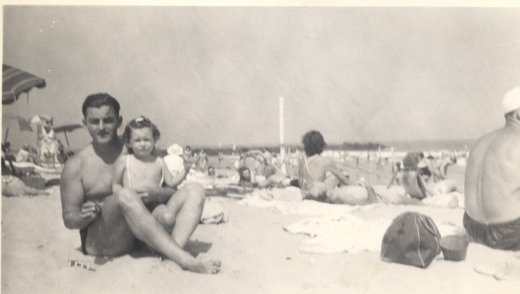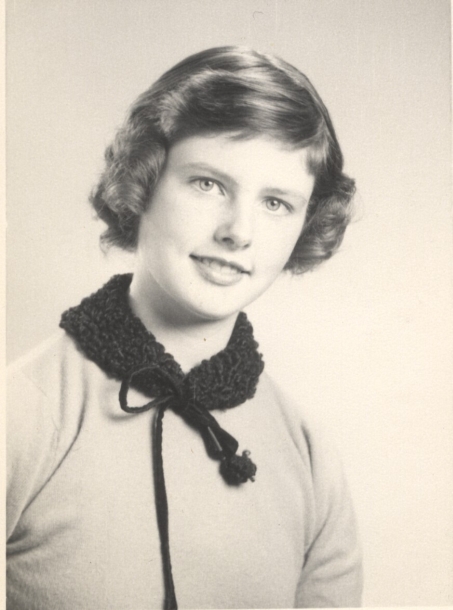Diamond in the Buff (21 page)
Read Diamond in the Buff Online
Authors: Susan Dunlap

Meandering down from his knees, droplets of steamy water outlined his thigh muscles. I rested a hand on his knee. “It’s funny, Howard, if it hadn’t been for the feud, Leila would never have brought Kris over here. And if not for the feud, she wouldn’t have allowed him to stay with Hasbrouck Diamond. And Diamond, Sandoval, and Zagoya might have realized that Kris was playing them all—except, of course, they were all too involved in playing each other to be able to compare notes.”
Howard took another swallow of beer, put down the bottle, and sank lower into the water. It lapped around his neck. Another two inches of thigh emerged. “But, Jill, what about the killer eucalyptus? Did Diamond’s nemesis, Sandoval, magically drop it on him?”
I sighed. “I want to go on record as being right about that branch. You cannot make them drop on cue. Even with the worst tree trimmer in Berkeley. Even with copper nails in the base and bacteria in the damp crotches. And in any case, it wasn’t Leila who damaged the tree, not that she might not have, had she thought of it.”
“Or Zagoya?”
“She was gone too much, in the Alps or wherever, to water anything regularly.”
“Diamond, huh? Willing to lose his head, literally, to save his spot in the sun?”
“He was never in danger. The thing was, Howard, his chair was not right under the branch. If it had been, the branch would have fallen on him. Branches that size fall straight down. This one didn’t hit him, because he wasn’t sitting under it, he was just far enough to one side to escape with a scratch. At the time he hatched the plan for the branch to fall, he didn’t care when it came down. He was just hoping that the implicit danger would be enough to force Leila to take out the trees.”
“But
he
was liable.”
“So he’d have had to pay to haul them out. He’d still have had his victory.”
“Regained face, eh?”
“Right. It was he with his hose on the roof who kept the crotch wet enough to cause the branch to fall. And he got a rope around it in the dark of night and pulled to weaken it. All he needed to do was check that Leila wasn’t home. No one else would notice. He was the only one who could have done that.”
“Then he sat back in the sun and waited? Every creak from the tree when the wind blew must have been a thrill. And they say the sedentary life isn’t exciting.” Howard laughed and shifted over so his arm was against mine.
Despite the heat of the tub a shiver ran through me. I realized I’d better talk fast. “That was his plan. But when he realized that Kris was going to destroy him, he hurried that plan along so we would be focusing on Leila by the time Kris died.”
“Rather than himself.”
“And his plans for Bev’s expedition.”
“It’s nice that he’s confessed.”
I wriggled under his arm. “We would have got him anyway. Would you like to guess what kind of suntan lotion he used? Patchouli oil.”
“Raksen will be unbearable.”
“He wants to send a copy of the report to ‘Police Beat.’ He wants it headlined
FOILED BY OIL.”
Howard laughed, then pushed himself up and reached for one of the thick towels on the pegs nearby. “We could go upstairs and build a fire. With the fog it’s cool enough.”
Howard was going to miss The Palace, too, even though he would never admit that this was the Triple Crown of dwellings, as compared to his own Glue Factory Handicap.
I sat in the warm water watching the drops scurry down his back, over his firm butt, down his long sleek thighs. “I’m going to miss this place,” I said. “I think I wasn’t meant to rent an apartment; I was meant to housesit in palaces. To watch tall, sleek, red-headed men rise like Excalibur from the steamy depths of hot tubs. To live above my element.”
Laughing, Howard reached over and pulled me up. Then his blue eyes narrowed into seriousness. “Jill,” he began slowly, “I know you aren’t wild about my house. You don’t see the hidden beauty, the possibilities—”
“The fuses that blow whenever you use two appliances at once.”
“Bedrooms that could be a study, a den, a music room, a hot tub/sauna even nicer than this.”
“The guy who hosted the chanting group at four
A.M.,”
I said, running a hand down his lightly tufted chest.
“The original mahogany once we strip the paint off the railings, and the mantel and the paneling in the dining room …”
“When you strip the bamboo that’s grown up through the floor in the downstairs bathroom.” I pulled his face toward me and gave him a kiss. “Howard, you are a superb man. You are wise, and clever, and discerning. But, dammit, you are the worst judge of houses in the entire city. You are the type of person who would have a beautiful new barn in your pasture and house your horses in a lean-to. You would see a knoll with a view of paradise and build that lean-to in the swamp at the bottom. You would—”
Howard was laughing. “I take it,” he said through his laughter, “that this means you are taking me up on my exceedingly generous offer to give you a spot at the bottom of my lease and a room that adjoins my own.”
A picture of my only real alternative flashed through my mind: Mr. Kepple’s porch, with Mr. Kepple plugging in his hedge clipper outside. “Just for a while, Howard.”
It was then that I saw the culmination of Berkeley syndrome, when the tomorrow you’ve staved off is today, when you come eye to eye with the pasture fence. Right then I saw that fence in a way that Leila Sandoval never would. It wasn’t blank and gray and endless as I had feared. Close up it came into focus differently. Some parts of it could be okay.
Okay if the one tenant’s beagle didn’t howl all night every night and the former tenant’s boa constrictor didn’t slither up though the pipes.
But some parts of this arrangement were likely to be very nice indeed. I smiled at Howard.
But there was still one outstanding debt in this case to be settled. Tomorrow I’d deal with that. I would borrow Howard’s Travelall and pick up the Mouskavachis from the airport (my own small remembrance for Kris). They would need someone to help them with the funeral, and finding a place to live, and getting inoculations for their children before they could be enrolled in school, and finding work, and lots lots more. It would be a big job for someone. Very probably a thankless job. But I knew how it could best be handled, best for the Mouskavachis and best for me. From the airport I would take the Mouskavachis to Telegraph Avenue, to Herman Ott’s office. In private, Herman Ott would put up a squawk. But I knew Herman Ott, he’d end up taking the entire flock of Mouskavachis under his wing.
Susan Dunlap (b. 1943) is the author of more than twenty mystery novels and a founding member of Sisters in Crime, an organization that promotes women in the field of crime writing.
Born in New York City, Dunlap entered Bucknell University as a math major, but quickly switched to English. After earning a master’s degree in education from the University of North Carolina, she taught junior high before becoming a social worker. Her jobs took her all over the country, from Baltimore to New York and finally to Northern California, where many of her novels take place.
One night, while reading an Agatha Christie novel, Dunlap told her husband that she thought she could write mysteries. When he asked her to prove it, she accepted the challenge. Dunlap wrote in her spare time, completing six manuscripts before selling her first book,
Karma
(1981), which began a ten-book series about brash Berkeley cop Jill Smith.
After selling her second novel, Dunlap quit her job to write fulltime. While penning the Jill Smith mysteries, she also wrote three novels about utility-meter-reading amateur sleuth Vejay Haskell. In 1989, she published
Pious Deception
, the first in a series starring former medical examiner Kiernan O’Shaughnessy. To research the O’Shaughnessy and Smith series, Dunlap rode along with police officers, attended autopsies, and spent ten weeks studying the daily operations of the Berkeley Police Department.
Dunlap concluded the Smith series with
Cop Out
(1997). In 2006 she published
A Single Eye
, her first mystery featuring Darcy Lott, a Zen Buddhist stuntwoman. Her most recent novel is
No Footprints
(2012), the fifth in the Darcy Lott series.
In addition to writing, Dunlap has taught yoga and worked for a private investigator on death penalty defense cases and as a paralegal. In 1986, she helped found Sisters in Crime, an organization that supports women in the field of mystery writing. She lives and writes near San Francisco.

Dunlap and her father at the beach, probably Coney Island. ”“My happiest vacations were at the beach,” says Dunlap, “here, at the Jersey shore, at Jones Beach, and two glorious winter weeks in Florida.”

Dunlap’s grammar school graduation from Stewart School on Long Island, New York.

In 1968, Dunlap arrived in San Francisco; this photo was taken by her husband-to-be atop one of the city’s many hills. Dunlap recalls, “It’s winter; I’m wearing a T-shirt; I’m ecstatic!”

Dunlap’s dog Seumas at eight weeks old. “We’d had him two weeks and he was already in charge, happily biting my hand (see my grimace),” she says. “He lived for sixteen good, well-tended years.”

Dunlap started practicing yoga in 1969 and received her instructor certification in 1981, after a three-week intensive course in India with B. K. S. Iyengar. Here she demonstrates the
uttanasa
pose (the basic standing forward bend) for her students.
